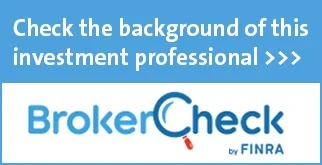Mutual fund costs can dramatically impact the investment return on your fund over time. All investors should understand what revolves around sales charges and expenses. Controlling these costs and working with financial services specialists can work to increase your investment earnings and success.
Financial Services Specialists Explain the Impact of Mutual Fund Costs
Mutual funds should be held as long-term investments. The typical investor working with a financial services specialist may own a particular fund for 10 or 20 years. The costs you incur over a long period of time may have a huge impact on your investment return. It’s important to understand the costs you will pay to buy the fund and hold your investment each year. Here are four factors that impact the cost of your fund:
1. Sales Charge
When you purchase a mutual fund, you may incur a sales charge. This charge may be assessed when you purchase the fund, or when you withdraw money from your account. A local financial services specialist can explain how much you may be charged.
2. Annual Expense
Like any business, a mutual fund incurs expenses to manage the fund each year. A fund incurs accounting and legal costs, as well as the cost of hiring money managers. The annual expense is typically charged as a percentage of the dollars you’ve invested. If you have $100,000 invested and your annual fee is 0.5 percent, for example, you would be charged $500.
3. 12B-1 Fee
Investors buy mutual funds from salespeople who are licensed to sell investments. After you buy the fund, you may have questions about performance, costs, and the tax impact of owning a share of the fund. A 12B-1 fee is an annual marketing fee to compensate salespeople for answering customer questions and monitoring the fund’s investment performance.
4. Taxation
The biggest impact of all may be taxation. You need to be clear about whether your earnings are taxable each year, or if those taxes are deferred and not paid until future years. Most retirement plans, such as a 401(k) plans at work, are tax-deferred investments.
So what’s the big deal? Well, if you can reinvest all of your earnings and not pay taxes on them each year, your total investment returns might end up being much higher. Those earnings may include dividends on stock, interest on bonds, or selling an investment for a gain.
Every mutual fund is sold using a prospectus. Take a look at the prospectus to answer some of these questions. A financial services specialist can provide a prospectus for your fund. If you understand the expenses for your mutual fund, you may be able to take steps to lower your costs.




